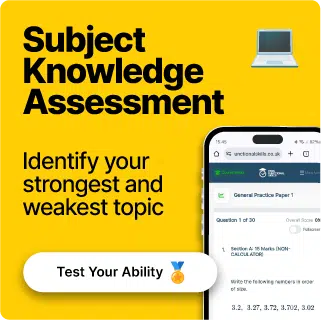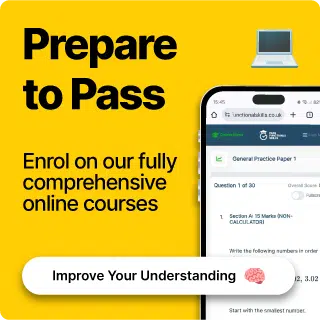SLC: Extracting Information
SLC: Extracting Information
Information can be confusing and complex. It is a good skill to be able to pick out what is relevant to you.
Make sure you are happy with the following topics before continuing:
What does ‘Extracting’ actually mean?
‘Extracting‘ just means ‘to remove or take out‘, according to the dictionary!
Being able to extract information for a written text is a very important skill.
However, in your SLC exam, you will also need to be able to extract information from presentations and conversations. This could be the main points of the speaker’s argument or specific information that you need to know.
To do this, there are a few different techniques you can use, let’s learn a bit about each of them now…


Key Tip No.1
One of the best ways to effectively understand and pick out the necessary information is to have some idea of what you are listening out for before the conversation or presentation begins.
This will help you to filter out unnecessary detail, or unrelated points, and to remain focused on what you need to extract.
Although there may be many wonderful and interesting things in the text, if it is not relevant to what you need to find out, then you need to train yourself to focus instead on what is.
For example, although this scuba diver is surrounded by amazing sea creatures, they remain focused on what they are searching for.
A complex text will be similar to this. It will contain extra details, pictures and view points which you must not get distracted by as you hunt for the central meaning.
Follow Our Socials
Our Facebook page can put you in touch with other students of your course for revision and community support. Alternatively, you can find us on Instagram or TikTok where we're always sharing revision tips for all our courses.
Key Tip No.2
Make notes!
When you are listening, even if you have an idea of what you should be listening for, it can be a lot to take in and sort through.
One of the best ways you can do this is to take notes.
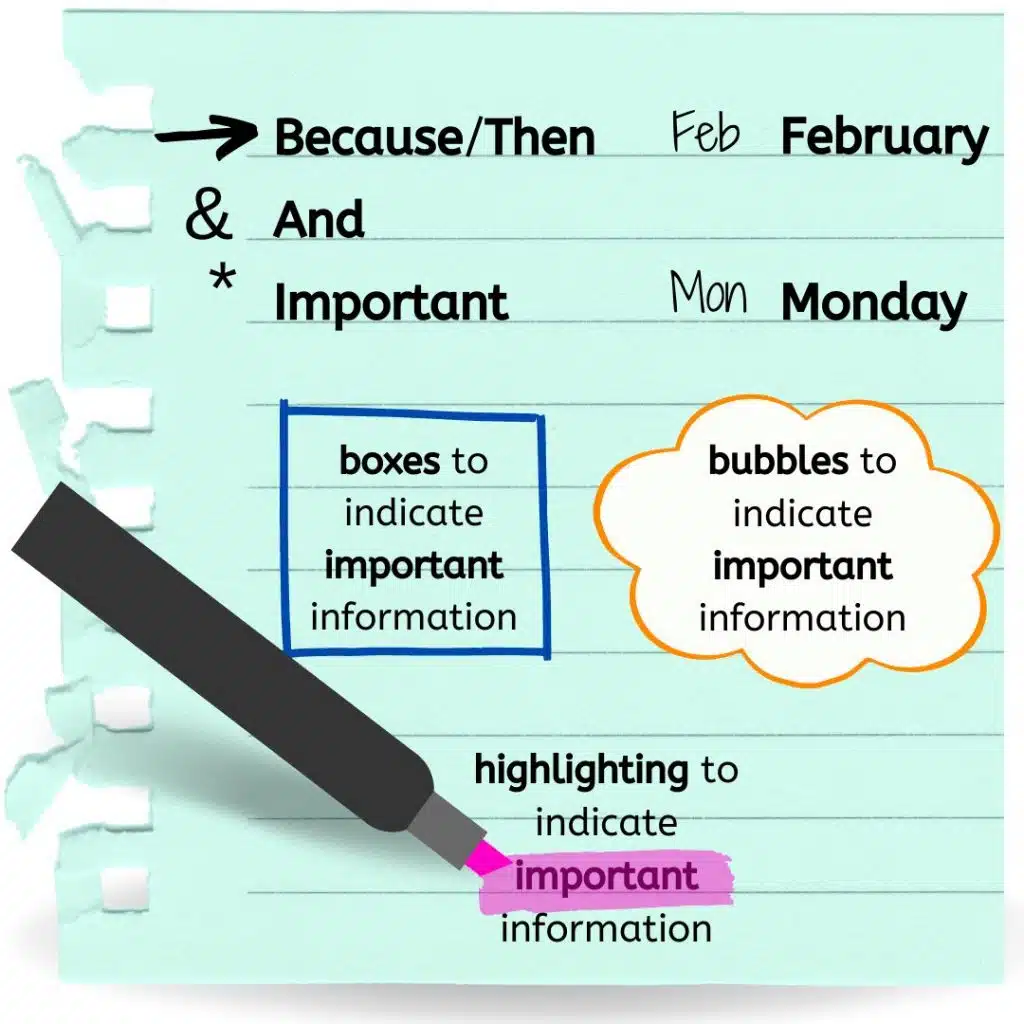

To take good notes…
- Use bullet points, highlight, underline or draw boxes around points which are emphasized or repeated by the speaker. This will help you to look at the bigger picture at the end.
- Use abbreviations. Abbreviations are shortened versions of words, and using them will make it quicker to read and write information. This will reduce the amount of space your notes take up, which makes it easier to spot patterns and connected arguments.
- Add small drawings, symbols or arrows to your notes. This can also be useful for trying to remember any extra details or links you notice whilst listening.
Relevant or Irrelevant?
The following is a text about the pros and cons of social media:

Highlighted in red can be considered as the irrelevant information – it doesn’t directly tackle the aim of the text:
The pros and cons of social media!
Everything not highlighted is the relevant information – it directly relates to the aim of the text.
Asking Questions
Extracting the relevant information will help you to formulate questions in the Q+A sessions.
Take a look at the text again…

Questions that could be asked based on the above text:
- What can be done to stop the issue of cyberbullying?
- Do you think the advantages outweigh the disadvantages?
- Should there be a time limit feature on social media to stop children becoming addicted?
These are questions that can be asked which seek extra information.
Asking Correctly
When you are asking questions, you should always remain polite and speak in a formal tone.
For example, it would be inappropriate to ask a question like:
- ‘Oi, what do you think?’


Make sure that you are actually asking a question, rather than a leading statement.
For example:
The castle is open to the public right?
Although it is clear that this is meant to come across as a question, this will not reach the necessary criteria.
Try to steer away from questions where the only answer could be ‘yes‘ or ‘no‘.
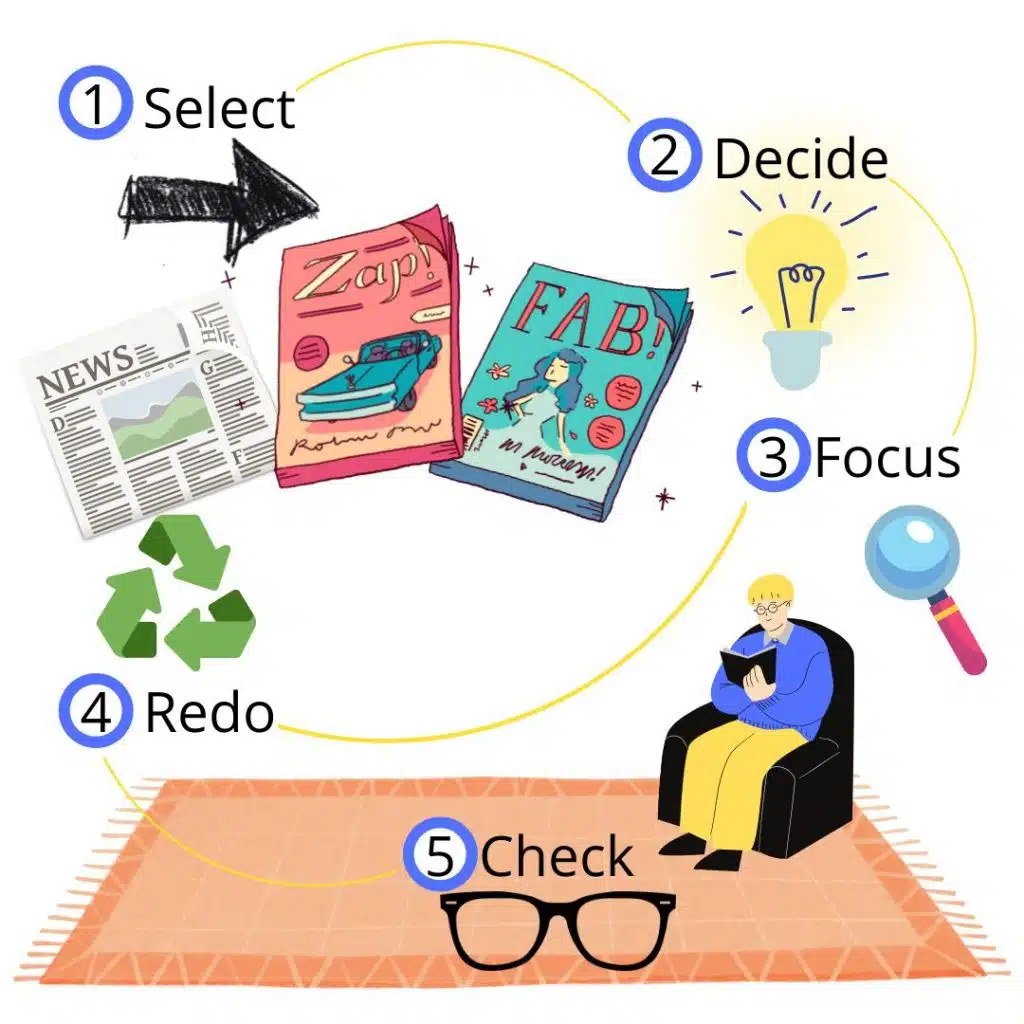

Example: How to
A good way to practice your ability to extract relevant information is to…
- Select a news or magazine page.
- From the heading, decide one thing you want to find out by the end of the article.
- Read through and try to focus specifically upon finding that information.
- If you don’t have the information by the end, read through again to check that you haven’t missed it.
- Sometimes it may not even be in the text at all!
Becoming familiar with this technique is important, and will be a skill you can develop with practice.
Specification Points Covered
EL3.1 – Identify and extract relevant information and detail in straightforward explanations
EL3.2 – Make requests and ask concise questions using appropriate language in different contexts
EL3.5 – Follow and understand the main points of discussions
L1.1 – Identify relevant information and lines of argument in explanations or presentations
L1.2 – Make requests and ask relevant questions to obtain specific information in different contexts
L1.6 – Follow and understand discussions and make contributions relevant to the situation and the subject
L2.1 – Identify relevant information from extended explanations or presentations,
L2.2 – Follow narratives and lines of argument
Revision Products
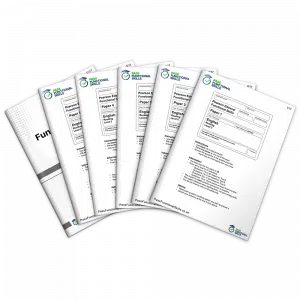
Functional Skills English Level 2 Practice Papers
This comprehensive set of 10 Functional Skills English Level 2 Practice Papers (5 reading papers + 5 writing) is a great way to revise for your upcoming reading and writing exams. These papers have been specifically tailored to match the structure, format and question types used by each of the main exam boards for functional skills English.
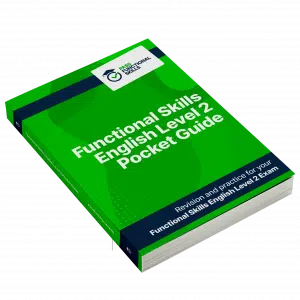
Functional Skills English Level 2 Book
Revise and practice for your functional skills English level 2 exam. All topics covered in this compact functional skills English level 2 book.
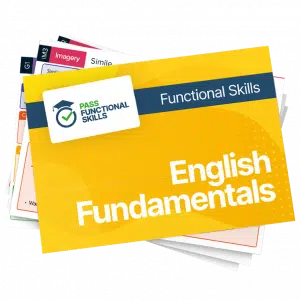
Functional Skills English Level 2 Revision Cards
Revise for functional skills English level 2, with these English level 2 fundamentals revision cards. Covering the building blocks of the essential areas of the level 2 exam.

